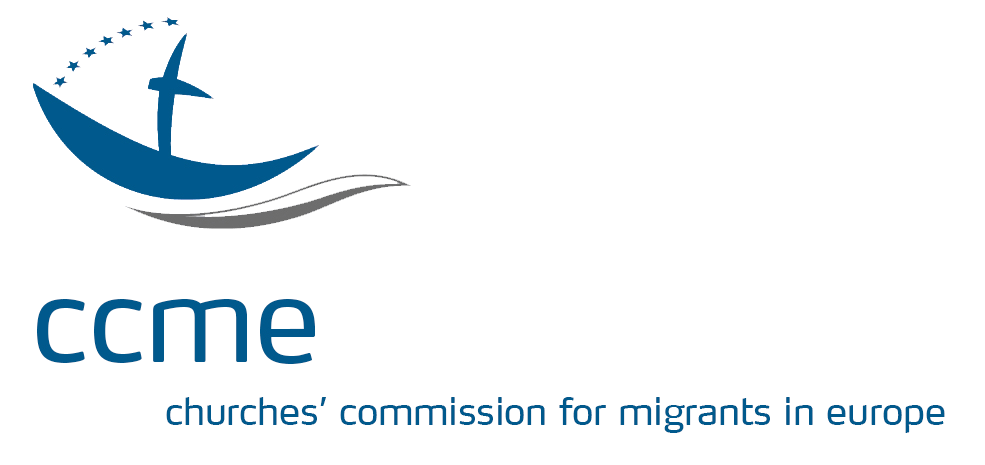TRAFFICKING FOR FORCED LABOUR AND CIVIL SOCIETY INITIATIVES AGAINST IT
COUNTRY STUDIES
RESULTS OF THE “GOING BEYOND” PROJECT
The debate on trafficking in human beings, which over the last two decades has focused on trafficking for sexual exploitation, has in recent years increasingly been broadened to include trafficking for forced labour.1 The progressive adoption of the provisions of international and regional instruments (such as the UN Palermo Protocol, the EU Framework Decision on Trafficking of 2002 and the Council of Europe Anti-Trafficking Convention) into national law has created a legal situation in Europe where there is no doubt that trafficking for forced labour is a crime and that protection should be offered to those affected by it.
The Churches’ Commission for Migrants in Europe (CCME) as the ecumenical agency of the churches in Europe on migration and integration, asylum and refugees and against racism and discrimination has, since starting its first activities against trafficking in human beings, underlined that the fight against trafficking needs to adequately address all forms of trafficking. As the CCME General Assembly in 2008 stated, “CCME sees its commitment against trafficking in the tradition of the Christian commitment against slavery, which led to the declaration of the abolition of the transatlantic slave-trade some 200 years ago. CCME (therefore) in its work against trafficking seeks to address all forms of trafficking”2 .
However, experiences from the field seem to suggest that few organisations have practical experience of investigating and prosecuting cases of trafficking for forced labour. Civil society organisations maintain that those trafficked for forced labour are only in exceptional cases receiving the support which they would need.
It was against this background that CCME and its partners in 2009 launched the project “Combating Trafficking in Human Beings – going beyond! Mapping and strengthening civil society capacity to protect and support victims of trafficking – beyond trafficking for sexual exploitation” (The so-called GOING BEYOND project).
The project, which gained financial support from the EU’s ISEC programme, had two aims:
– To map existing capacity in civil society to combat trafficking (outside sexual exploitation)
– To develop existing capacity further by sharing best practice and developing a best practice manual
CCME and its partners throughout 2009 and early 2010 researched labour trafficking (and initiatives against it) in 12 European countries (Bulgaria, Cyprus, Czech Republic, Greece, Ireland, Italy, Moldova, Poland, Romania, Spain, UK and Ukraine) and met with civil society partners from the respective countries for exchange.
The results of the researches can be found underneath. While they were produced for the project, the content of the research remains the responsibility of those who carried out the research.
- Cyprus: TRAFFICKING FOR LABOUR IN CYPRUS
- Czech Republic: LABOUR EXPLOITATION IN THE CZECH REPUBLIC
- Greece: TRAFFICKING FOR LABOUR IN GREECE
- Ireland and UK : TRAFFICKING FOR FORCED LABOUR IN IRELAND AND THE UNITED KINGDOM: ISSUES AND EMERGING GOOD PRACTICE
- Italy: SLAVE LABOUR – SOME ASPECTS OF THE PHENOMENON IN ITALY AND SPAIN
- Poland: TRAFFICKING IN HUMAN BEINGS LABOR EXPLOITATION IN POLAND
- Romania: TRAFFICKING IN HUMAN BEINGS LABOR EXPLOITATION IN ROMANIA
1. The term “trafficking for forced labour“ has in recent years become predominant in the debate on trafficking with the aim of exploiting the work of others. It is therefore used in this guide. According to the ILO forced labour convention (ILO convention no. 29) of 1930 forced labour is “work or service exacted from a person under threat or penalty, which includes penal sanctions and the loss of rights and privileges, where the person has not offered him/herself voluntarily”. It has to be noted that the terminology is incoherent: national legislation often only speaks of “trafficking for labour”.
It should also be noted that many of the cases discussed do not necessarily include all elements of FORCED labour and would therefore be more accurately be described as trafficking for labour exploitation.
The term “trafficking” in this booklet refers to trafficking in human beings, unless otherwise indicated.
2. Churches´ Commission for Migrants in Europe: So if the Son sets you free, you will be free indeed (John 8,36) CCME´s commitment against trafficking in human beings

